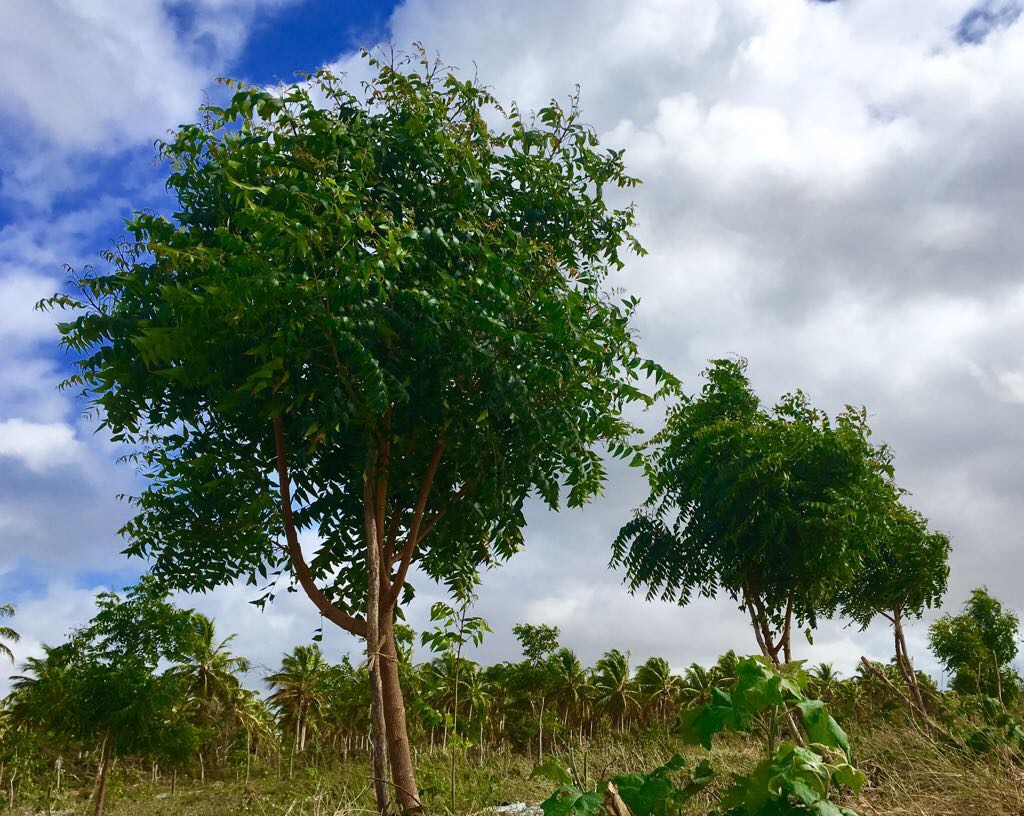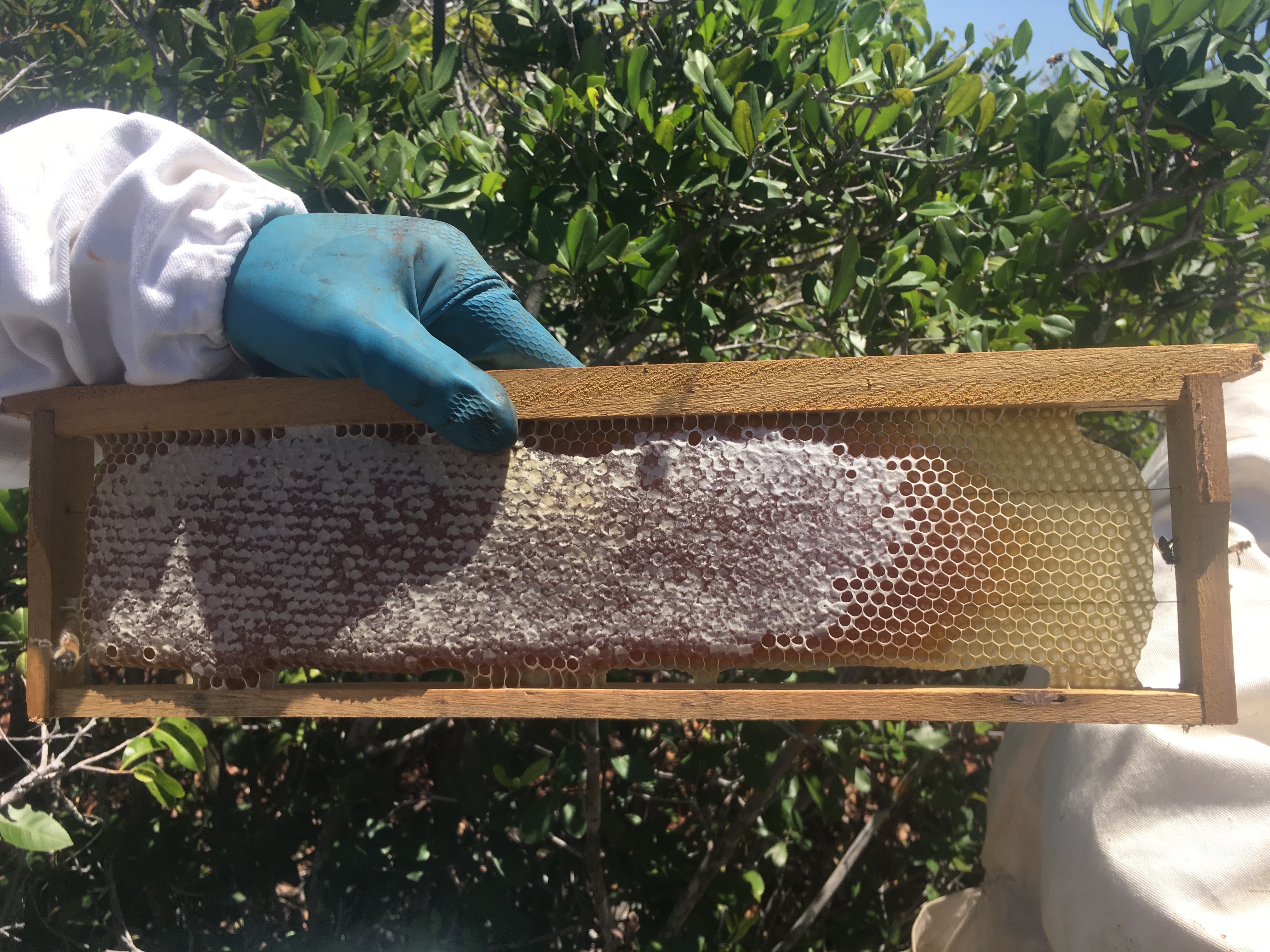At Primal, we take great pride in our philosophy and the principles of sustainability, regenerative agriculture and futurist technologies we implement on a daily basis. We therefore greatly appreciate every opportunity to tour our investors around our project in Brazil, and share aspects of the plantations that are not fully appreciable until being on the ground and experiencing the project first hand. Given that time constraints of daily life dictate that only a limited portion of our clients can visit in person, we would like to allow those who aren’t able to visit as close an experience as possible by sharing details of some of our client visits.
On this occasion, we had the pleasure of touring Christopher Rollins, a US entrepreneur with close family ties to the largest pest control company in the US. Our versatility and environmentally-friendly approach were among the main reasons why Chris decided to invest with us. Chris outlined, “The renewable nature of the resource and broad range of applications for neem-derived products really attracted me to this project”.
Day 1
On the first day after arriving in Fortaleza, Christopher’s day started with a tour of Fazenda Lagoa Grande, where he was able to get a first impression of the project through our dwarf and hybrid coconut trees, and see many approaching their first flowerings and fruits. Moving on to adjoining Fazenda Palmeira Grande, Chris had the chance to bask in the sunshine through over 1,000 hectares of once vegetative land that is now the base of our agricultural operations including infrastructure, natural resources and our burgeoning neem plantation.

Fazea Lagoa Grande and coconut tree


Fazea Palmeira Grande and neem trees
In order to allow for a better understanding of how our plantations are managed, our Global Project Implementation Manager, Paloma Escandón Matarazzo, invited Chris to our on-site offices, to give a detailed presentation of how we use drone technology to ensure optimal plantation development. Chris voiced that he was impressed with the modern methods and technology we use to track and plan the development of our trees, and optimize the efficiency of the plantation. “I was most impressed with the design and layout of the farm along with the implementation of new technologies that gather real-time data and improve the efficiency and productivity of the plantation. Real-time data collection and analysis provides management with the ability to proactively address potential problems before they arise.” Chris clearly understood that by using drones to collect data, we are able to keep track of pests, soil condition and the overall health of our land. Our team receives real-time feedback and can deliver agricultural inputs in customized and calibrated doses.




(from top left) Our Drones, normal shot, green cover shot and canopy shot of our plantations taken with our drones
The tour continued to our on-site neem nursery, which can hold up to 72,800 neem seedlings at any given time and represents the starting point for our neem trees on their journey to full maturity. Chris received first hand insight into the selection process of neem seeds, which are acquired locally and chosen from the highest performing trees possible, before being transported to their new permanent home in the fields after 3-6 months of intensive care.



Neem saplings and our neem nursery
The latter parts of Day 1 consisted of visiting our infrastructure and resources on-site that allow us to effectively manage our plantations. At our eco-dam, Chris was able to inspect the impact the new structure has had on our surface water reserves. As most of our clients know, we have experienced huge variables in weather during the last few years, from an unprecedented 3 year drought, to the other extreme of flooding due to a record volume of rainfall in a single season that followed. By integrating a new bleeder system, we have enhanced our ability to control the water levels, and allow water to flow into a lay-off area should it be required, further helping secure this vital natural resource. This huge reservoir is now able to hold over one million square meters (264.2 million gallons) of water – which will be used to help sustain the water requirements of our neem and coconut trees, come rain or shine!


Following on from this, Chris continued the tour across our project, including a visit of our pumphouse, the base for the Netafim fertigation technology that is currently being employed on the plantations.
It is this combination of technology, sustainable practices and organic farming techniques that allows Primal to remain ahead of the curve in the agricultural sector. The implementation and modernization of traditional processes in agriculture through technology including solar panels, UAV technology and drip fertigation systems have optimized our use and distribution of inputs, increasing efficiency significantly across our project.


(from top left) Azadirachtan test, pump house and solar panels
One of Chris last stations on Day 1 at the plantation was the bee hives and apiary project. By pollinating, our bee populations ensure that the surrounding ecosystems remain diverse and sustainable, while strengthening the yield potential of our crops. The success of our hives to date has proven the non-toxicity of neem to vital pollinator populations like bees and we continue to work with local institutes, such as the Federal Institute of Ceara, to further our work in this area. Our natural approach towards business and agriculture is clearly visible to clients who visit our project. Chris agreed – “a more sustainable approach will allow the land to be more productive; generating higher and more stable yields over time”.


Bees in our bee hives and honey
The day ended at Fazenda Rio Grande, our neem plantation separated by a 20 minute journey from FLG and FPG. Currently comprising our most mature neem trees, there is a real sense of a forest taking shape. Although featuring natural growth variations owing to differing genetics of trees, some of the tallest neem trees now tower at well over 13 ft! As the neem trees continue towards maturity, it is expected that the growth across areas will become a little more uniform.


Neem trees and neem flowers
Day 2
After a good night’s rest at the wonderful Zorah Beach resort, an Indonesian inspired boutique hotel, located on the beach a few kilometers from our plantation, the following day consisted of a visit to our offices in Fortaleza. This provided an opportunity to meet the rest of the team in Brazil, and see the impactful day-to-day work that goes on behind the scenes in Brazil. The administrative team in the Fortaleza office manage business operations across administration, accounting and finance to ensure visibility and perspective across the plantation activities.
Chris shares the belief that we are just beginning to tap into the neem tree’s full potential, and that demand will continue to increase as its benefits are better understood. Neem is finally being utilized around the world to protect crops, increase soil nutrition, boost livestock and global health. Further research into the many benefits of neem will help exploit its full potential and increase global demand. Due to the growing demand for nature-derived products and neem’s various applications, the global neem extract market is expected to grow from $653.7 million in 2015 to $1,868.2 million in 2022.
By approaching sustainability through innovation, we remain at the forefront of agriculture and evolving a more sustainable future through a People, Planet, Profit synergy. We hope that this newsletter gave you a glimpse in to our plantation and we very much welcome all that wish to come and visit our project.
As a closing statement, we really appreciate that our clients personally look to make a difference, and Chris is no exception. ”We are happy to share that we have sponsored Chris in the 5km Chastain Chase, which is part of the annual springtime fundraiser for the Cancer Support Community of Atlanta.”, says Primal Group CEO Anthony J. Archer. The Cancer Support Community Atlanta is the local chapter of the world’s largest nonprofit provider of psychosocial oncology programs. The mission is simple: help people affected by cancer enhance their health and well-being by giving them support, education, and hope. If you would also like to support this wonderful cause, please give Chris a helping hand in his admirable endeavors by clicking here.



